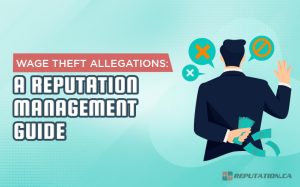Most mergers and acquisitions don’t work out – we’re talking about 70 to 90% of them that fail to give businesses what they were hoping for. These deals get destroyed by factors you wouldn’t always expect, though. Reputation damage actually kills them faster than financial problems or business operation problems.
Company executives will spend months working through financial paperwork and legal laws when they’re putting together mergers and acquisitions. Reputation management almost never gets the same treatment. Businesses can work for decades to build their brand value. One bad news cycle can destroy it all.
Once these deals become public, nervousness starts to spread across everyone who is involved. Workers start worrying about their job security, and they share these problems on social media. Other businesses in the same space are always watching for problems they can exploit. News organizations start asking harder questions, and they look for more negative stories. Customers start questioning if their service experience is going to stay the same. Previously stable business relationships suddenly become much less sure.
Normal reputation management methods just don’t work during these deals because everyone wants honesty more than ever before. Putting two businesses together creates the perfect situation for bad stories to show up and spread fast online. Executive teams are finding out that protecting their company’s reputation needs to be just as big a deal as the legal work and the financial matters throughout the whole deal.
M&A deals can damage company reputations, and most businesses get caught completely off guard by this situation. Problems start early when two separate businesses suddenly get lumped together, even though neither company actually thought through what this would mean for how their customers see them. Brand reputations that took years to build can get mixed up in ways that create problems nobody saw coming.
Let’s talk about how to work with this situation.
M&A Deals Put Your Reputation at Risk
Merger and acquisition announcements make situations get hard and messy much faster. Every choice they make from that point forward ends up under a microscope. News organizations that never took time to cover them before are suddenly interested in reporting their smallest moves. Meanwhile, workers start to worry about whether their jobs will survive the transition, and those conversations spread much faster around the office and at home.
Failed deals create opportunities for a lot of reputation problems to come up. Your competitors are going to see the situation and think it’s a great time to call your customers and ask if they might want to switch providers. Meanwhile, your investors become more worried every time they see another headline about your company show up in the news. Activities that would never get any media attention before can suddenly become a big story when the press is already paying close attention to everything you do.

Rite Aid and Walgreens provide a great example of how business deals can go wrong. A normal acquisition (one company buying another) became a big problem once the government regulators decided to block it. Bad news stories started to show up everywhere you looked (social media, news websites, and traditional media), and they wouldn’t stop. Stock values dropped, and customers began to think about whether they actually wanted to shop at either chain.
Bad news spreads much faster than positive news, and it’s not even close. A shared post can reach thousands of users in a couple of hours. Consumers make decisions based on the pieces of information that they happen to see.
On top of that, you’re still working to build up the strengths that made the deal worth doing from the beginning.
Check Company Reputation Before You Buy
Due diligence teams always look at the financial and legal sides of acquisitions, and it makes perfect sense from a business perspective. Reputation problems that can really damage your deal value months after you close usually get missed. Your financial models might show great returns. Public perception problems can make those projections meaningless very quickly.
You should check what comes up when you search for their name online – it can tell you everything about what others will find when they look into the company. News stories from previous years will show you how they’ve handled tough situations and whether they took responsibility for their problems or just made matters worse for themselves. Glassdoor reviews from employees can give you an idea about what’s going on inside the company, and internal problems almost always turn into public disasters eventually.
Customer review sites are worth checking, too, because upset customers who get ignored by businesses know how to make their complaints spread faster on social media. Healthcare organizations have realized they need to improve at finding reputation problems before they become disasters. That’s why a lot of them are now putting money into tracking tools that can find these problems early in the acquisition process.

These systems can find issues like community resistance or recent legal disputes that standard financial reviews would never catch. You want to find these problems while you can still rework the terms or walk away from the deal completely. Financial impacts from acquisitions don’t affect you until after you’ve already finished everything and signed all the paperwork.
Reputation problems that appear later will cost you about ten times more than what you would have spent if you had spotted them earlier, while you were still negotiating the contract terms. Issues that could have been fixed with just a quick price adjustment during the review end up as months of expensive reputation recovery work. Reputation research gets ignored because it seems like an unnecessary step when everyone wants to move faster toward closing – it can cost millions and create the wrong mindset.
Reputation due diligence works as helpful protection against public relations disasters that can make your company front-page news for all the wrong reasons.
Talk to Your Stakeholders the Right Way
Deals create reactions from stakeholders, so it makes sense to see who those stakeholders are before you announce anything. Workers worry about their jobs and if they’ll still have them when everything shakes out. Customers hate it when you change the service they get from you. Investors want the money they put into your business to grow and make them more money. Government agencies have laws they expect businesses to follow, and they monitor whether businesses follow those laws.
Every one of these groups needs to hear different versions of the same story. Something that makes an employee feel happy about keeping their job could be boring to an investor who wants to hear about profits. Something that gets an investor very excited about making money could make a customer nervous about what might change for them.
Get your communication team to work on this right from the start of the whole process. Way too many businesses just sit there and wait until stakeholders gossip or until actual problems show up, and by that point, you’re already way behind. Stakeholders have already made up their own stories about what’s going on.

Stakeholders jump to bad conclusions when they don’t hear from you on a steady basis. That quiet time you think keeps the deal safe and out of harm’s way works against you. They don’t have any actual updates to go on, so they’ll start to make up their own story about why nobody communicates anymore, and whatever they dream up is going to be worse than what’s actually happening.
Staging how you roll out the news in waves gives you the space to work with anxiety while they’re still small, way before they turn into big problems. Your main message should go out first, and then you can add layers of detail on top of that as you work through each phase – this way, you control the story that stakeholders hear about your situation instead of having to scramble to respond after somebody else has already told their version.
Honest conversations with clients about how long projects will actually take and what they’ll get at the end are probably the toughest part of any business. Most business owners like to share optimistic timelines because clients want to hear positive news. Once those commitments don’t work out as planned, clients stop believing everything else that they hear after that. Trust gets much harder to rebuild after a disappointment like that than it was to build it originally.
Culture Problems That Can Hurt Your Company
Mergers might make perfect sense from a business standpoint. Mixing two different company cultures together can get messy fast. Most leadership teams don’t see how fast these cultural problems can turn into big reputation problems for the combined organization.
Frustrated employees and disappointed customers aren’t keeping their complaints behind closed doors anymore – they’re sharing their negative experiences on review sites and social media. Your prospective customers spend time researching businesses in those same places before they make their buying decisions.
Internal feuds become a big headache when they spill over into how your team deals with customers every day. Your front-line staff gets completely divided on what makes customers happy or what they should do when a customer calls in with a complaint. Customers can see this confusion and will watch your staff fumble around without any coordination, and it doesn’t take long before they question if your company actually has its operations under control.
Businesses should get their cultural integration teams started long before any merger problems have a chance to pop up. These teams need to spend their time looking at where the two businesses are going to rub one another the wrong way. One company may have always been about speed – they make decisions fast and get work done faster. At the same time, another company probably cares about accuracy and wants to check everything over step by step before they move ahead, and each of these ways of running a business makes sense on its own. Without a plan for mixing these two styles together, though, customers get completely different service depending on who they talk to, and it just leaves everybody confused about what’s going on.

Mergers and acquisitions create a predictable problem that most executives don’t see coming. Leadership from the buying company walks in and decides that their way of doing business should become the new standard for everyone. Employees at the purchased company watch this happen and feel like everything they’ve worked to build is tossed aside. Talented workers start looking for new jobs, and before long, you see articles in the trade publications about how the integration is going poorly.
Each organization probably has some cultural strengths that are worth keeping and mixing together. Maybe the acquired company has built strong relationships with local organizations and community groups, and the buying company has customer service practices that work well. Combining those assets (instead of just throwing one away) can create a workplace that performs better than either company did on its own.
Internal disputes have a nasty habit of spilling over and becoming public reputation problems, and when that happens, the whole situation can turn into a big executive crisis that could actually derail your entire merger deal.
Track Online Chatter and Plan Your Response
Your merger is going to generate chatter online, and you should keep track of what’s being said across multiple channels. News outlets will cover your story – that’s just a part of how business journalism works.
Social media sites fill up with talk whenever big business deals get announced, and people love to share what they think about everything that’s happening. Review websites see more activity as customers want to post their opinions and reactions. Employee forums and job boards also get busier during these times-your team members will be talking about how these changes might affect their day-to-day work and what it all means for the company.
Keeping an eye on these channels lets you catch minor concerns and complaints early in the process. Seeing these problems sooner gives your team the chance to respond to them directly and clear up any confusion before it grows into something that harms your reputation.

Response templates written in advance help teams move quickly when trouble comes up. These frameworks save everyone from staring at a blank page while the clock is ticking. Healthcare businesses are turning to computer programs now to scan social media and find issues before they spread everywhere. These tools keep them one step ahead of reputation problems.
Most communication experts say that businesses have about 24 hours to control a negative story before it starts growing on its own. Speed matters. But rushing to respond with the wrong message can backfire. Corrections that don’t work well tend to make the original problem look way bigger than it actually was.
Getting to know reporters and industry writers pays off when businesses actually need them. Media contacts who already know the leadership team are more willing to give fair coverage and listen to the company’s side of the story – this relationship work pays off during merger announcements when media attention increases.
Monitor and Manage Your Reputation
Every business combination creates reputation challenges, and this happens no matter how much planning businesses do or how strong their communication strategies look on paper. Businesses that manage these challenges well aren’t staying away from problems completely – they’re just better prepared from the beginning and can respond when problems start. Businesses that invest time early in the process to find these reputation problems, build strong relationships, and create tracking systems that work well wind up much better positioned to control damage and recover when unexpected problems happen.
Your reputation management during mergers and acquisitions can affect your financial results, because when stakeholders trust your company, that trust actually turns into money in your accounts. Customers who feel comfortable with the new company will continue spending their money with you during the merger, not with your competition. Workers who believe in what the combined company is creating will continue performing well even when the future feels up in the air. Investors and business partners who watch you put everything together with honesty and skill will continue their financial backing with your company – this trust turns into what holds up everything else that the merged company wants to accomplish.
Businesses that put just as much effort into protecting their reputation as they do into checking all the financial numbers and figuring out how everything will work together after the deal – those are the ones that continue winning long after everyone else has moved on. I see this all the time with mergers and acquisitions that are still paying off years later.

At Reputation.ca, we work with businesses across Canada to manage how they look online and in the media. We take care of the online reviews, social media tracking, press relations, and crisis management – all the elements that can make or break how customers and investors see your business.
Reach out to us today at Reputation.ca – let’s talk about how to get your business the positive attention it deserves and protect it from the negative publicity.







